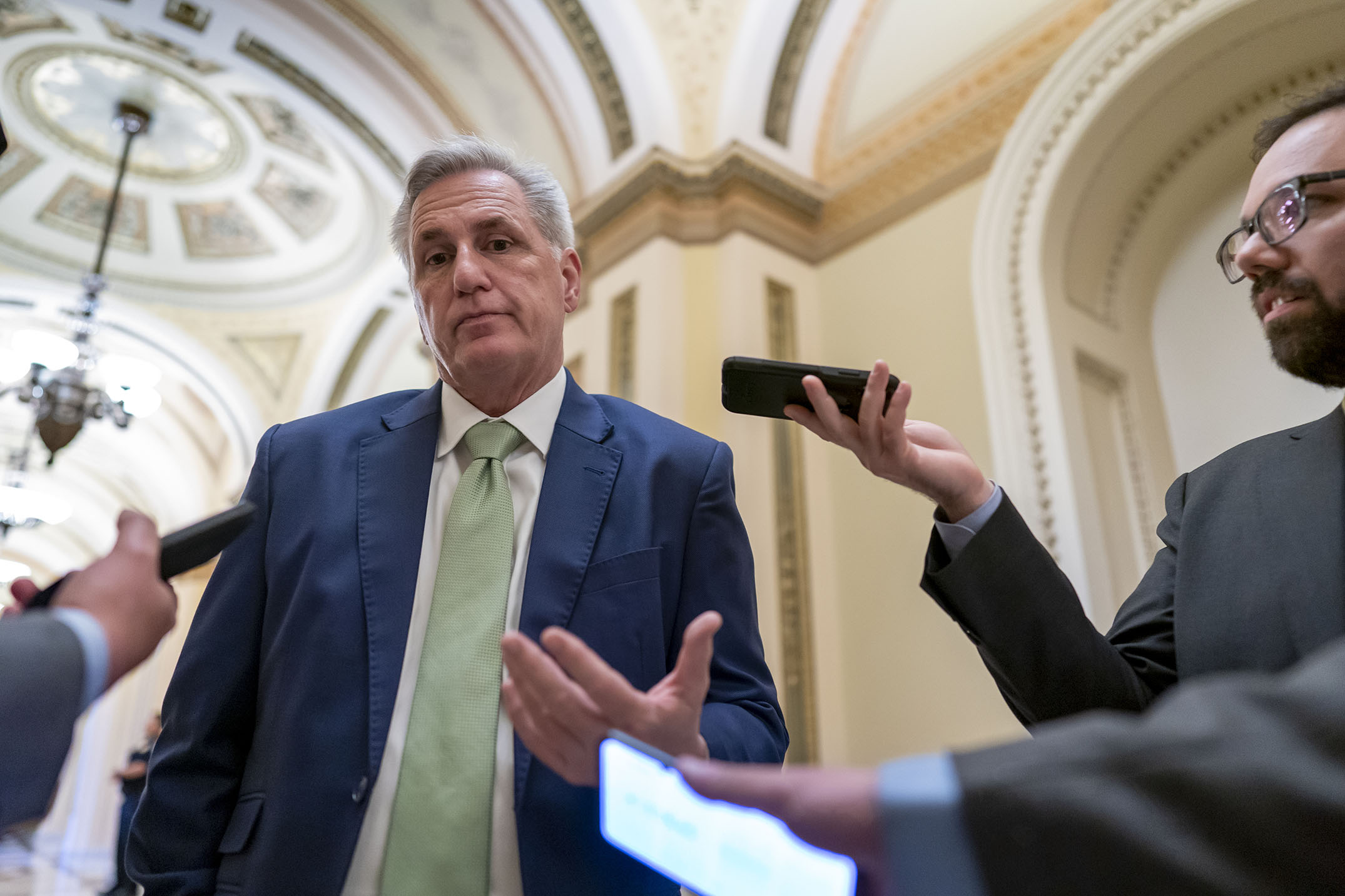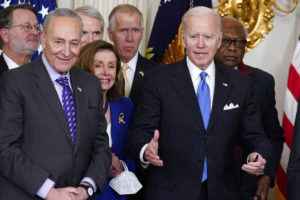
As history suggests that Republicans will pick up the seats they need to regain control of the House of Representatives this November, the actions of the minority party are becoming increasingly relevant. In just the past few weeks, multiple members of the caucus have made headlines for their controversial remarks.
It’s not necessarily what these members do that is important. Certain members will continue to perpetuate racist, xenophobic, and homophobic rhetoric whether in the minority or the majority. It’s more important to watch how Republican leadership interacts with these members, as this tells us who will be heard in a Republican majority coalition.
At the center of these controversies is Minority Leader Kevin McCarthy. As the highest-ranking Republican in the House and heir apparent to the speakership come 2023, McCarthy’s actions are especially telling.
When Rep. Greene (R-GA) and Rep. Gosar (R-AZ) attended and spoke at a conference led by a prominent white nationalist, McCarthy gave them the equivalent of a slap on the wrist, avoiding reporter questions about what their punishments were. However, when Rep. Cawthorn (R-NC) called out members in his conference for allegedly attending orgies and doing cocaine, McCarthy forced Cawthorn to recant his story, and publicly stated that he had ‘lost all trust [in Cawthorn]’ after his comments.
Why has McCarthy, and Republican leadership in general, selectively applied a moral lens to his caucus? The answer is surprisingly easy: political calculation.
To get to the speakership– a position that McCarthy has coveted for at least the past decade– McCarthy realized that the only major obstacle to his rise within the Republican Party is the Freedom Caucus: a far-right group of members which includes Greene and Gosar. In 2015, it was the Freedom Caucus that stymied his run for Speaker, and in 2018 it was part of the reason for then-Speaker Ryan’s unexpected retirement.
McCarthy has watched speakerships rise and fall due to fierce far-right opposition. As someone whose political style has been described as ‘an appeaser’, McCarthy knows that his best chance to lead the caucus rests on his ability to placate members such as Greene and Gosar, So he turns a blind eye to their actions and attempts to do as little as possible when they come under fire. However, when a member like Cawthorn draws the ire of Freedom Caucus leadership for his ‘immoral’ comments, they become free game for McCarthy.
While McCarthy initially ran for Republican leadership in 2014 as a moderate option, he has since shed this establishment mold and started to court more extreme members– once it became clear to him that his ability to become Speaker rested on his ability to win the favor of the Freedom Caucus. This has resulted in a desperation for their approval, burning bridges if needed.
In 2021, he helped oust Rep. Liz Cheney (R-WY) from her position as the third-ranking Republican in the House for her criticisms of Trump, and even went so far as to raise money for her primary challenger. He was instrumental in defeating the creation of an independent commission to investigate the January 6th attacks, after initially supporting them and convincing fellow Republican Rep. John Katko (R-NY) to lead the Republican whipping effort in the House.
While these attempts to latch onto the Freedom Caucus may well result in McCarthy becoming Speaker of the House, politics is a game of trade-offs. By burning bridges with members and allowing himself to become increasingly beholden to the extremist factions of his caucus, McCarthy may increasingly find himself lacking the political capital to reign in his own caucus when necessary. An inability to control his own caucus might leave him unable to steer his agenda as Speaker, or even stay in power for long. Voters are quick to check institutions they view as having gone too far from ‘mainstream’ politics’.
For instance, when Republicans took the House in 1994 amidst a conservative wave, then-Speaker Newt Gingrich’s conservative leadership provided President Bill Clinton the perfect opportunity to win a second term on claims of Republican extremism and overreach. Gingrich would resign the speakership in 1998 after poor electoral showings, and be replaced by Dennis Hastert, a more establishment choice.
Although politics isn’t the same as it was 20 years ago, a few things haven’t changed. By trading his autonomy and brand for power, McCarthy is playing a dangerous game. As the German legend of Faust goes, those who trade their souls for the material may find themselves at the mercy of forces beyond their control.
McCarthy’s quick rise to power may precede a quick fall.



